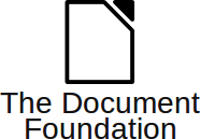The Unsaid Document Foundation (more talkbacks)
“The Unsaid Document Foundation” series is disappointingly considered “fud” from LibreOffice developers, and Michael Meeks saying (again) that I made some good points, calls me a non-developer, probably to infer that I am not the best person to make programming suggestions.
Commercial open source blog readers care little to know about my computer science degree, or how much code I have been writing on a PDP-11 system. Therefore I would rather spend the rest of this blog entry sharing more thoughts about LibreOffice future.


This shows a lack of understanding of how free and open-source software works. How to do community-building and create a sustainable environment.
Did you ever get involved deeply into the development of an open-source project?